
Life will only change when you become more committed to your dreams than you are to your comfort zone.

Life will only change when you become more committed to your dreams than you are to your comfort zone.

The Global Leadership Summit in Bogota, Colombia demonstrates how God uses this event in sometimes surprising ways to impact individuals when they least expect it.
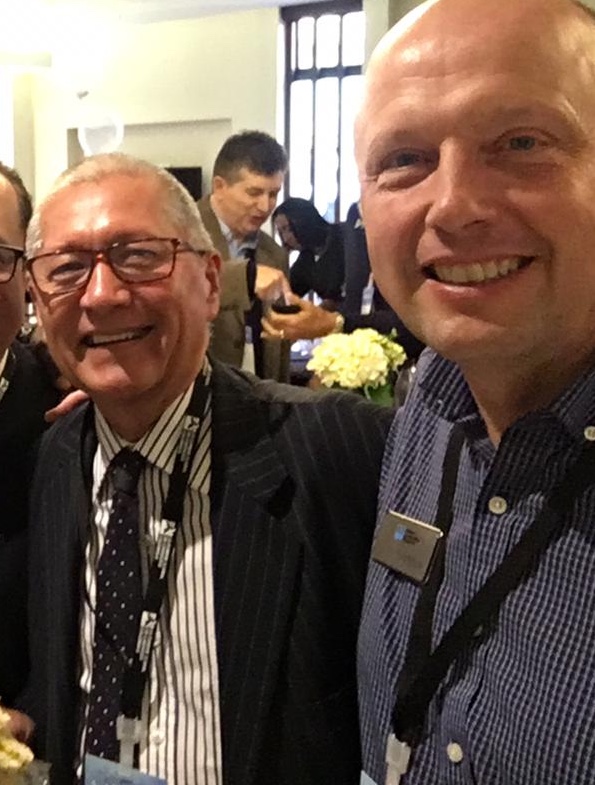 At the recent GLS in Bogota, I met a retired gentleman named Guillermo Perillo. Guillermo explained to me that he originally did not want to be at the GLS. His wife wanted to go, but he was very reluctant to come along. He thought the whole idea of a video conference on leadership was silly. But he wanted to support his wife, so he agreed to come along.
At the recent GLS in Bogota, I met a retired gentleman named Guillermo Perillo. Guillermo explained to me that he originally did not want to be at the GLS. His wife wanted to go, but he was very reluctant to come along. He thought the whole idea of a video conference on leadership was silly. But he wanted to support his wife, so he agreed to come along.
As he sat there, and the event progressed, he discovered God was stirring something up in him. Gradually, the cynicism he came in with began to evaporate. God worked through each speaker to warm his heart and Guillermo began to take on an open posture.
“A big reason I was unhappy about attending,” he explained to me, “was because I recently retired from my business career. And as far as my understanding was concerned, my leadership was finished. It was all over. I didn’t believe I had anything left to offer.”
But God was starting to speak to him through the GLS.
I started to see God wanted me to use my leadership to advance His Kingdom!
“God finally got through to me,” he said, breaking into a huge smile. “I started to see God wanted me to use my leadership to advance His Kingdom! I don’t know yet what that means, or what it looks like, but that’s okay. The main thing is, I am coming away from the GLS more excited than ever to make a difference for God.”
He took a pause and then summed up his GLS journey with one powerful statement.
“I thought I was finished. Now I see, I’m just getting started….”

Companies, teams and communities do not blindly stumble into greatness. For remarkable goals to be achieved…for a tremendous success to be accomplished…for a community of people to rally and overcome tremendous odds—it always begins with vision!
Vision is the distance that exists between the reality of “what is” and the possibility of “what could be.”
Vision is not optional for the effective leader. To use a movie reference from Back to the Future, vision is the “flux capacitor” of leadership. It makes time travel possible for a group of people to suddenly see a preferable future.
I have learned the importance of vision and gained insights into how to help people to see a better tomorrow.
Steven Covey has written, “All things are created twice.” First, there is the mental creation and, second, the physical creation. Vision pertains to this first creation. Your people have to see it, before they can be it. This is why for leaders, the ability to cast a compelling vision is a must if you are going to take your company, not-for-profit or team into the land of “what could be.”
In my leadership experience with three different organizations, I have learned the importance of vision and gained insights into how to help people to see a better tomorrow.
Storytelling is the single greatest visionary device any leader has in his or her toolbox. Stories, by their very nature, take the listener into the future. A well-told story will grab the attention of an audience. At NewThing, we focus on developing leaders who will start new churches. One of my favorite stories comes from our global director who just 10 years ago didn’t even believe in God. Over the last decade he not only came to faith, but now oversees 150 church planting networks and more than 2500 churches around the world. I finish telling his story by challenging my audiences, and there are a lot more people just like him sitting in your churches waiting to be developed and challenged to great things for God.
• What stories from your organization are the prototypes for what you would like others to do?
• What stories from history, sports or art demonstrate the kind of greatness you’d like to see your team achieve?
The right-brain people will be moved and motivated by your storytelling, but the left-brain folks will be convinced by statistics.
Slogans can also be a great help in vision casting. A well-crafted slogan has the ability to encapsulate lots of stories. It is like storytelling on steroids. I remember the first time I heard the founder of Habitat for Humanity speak. He said, don’t you think everyone deserves a simple, decent place to live? You could see heads nodding all over the room and you could feel the agreement throughout the crowd. “Everyone deserves a simple, decent place to live” was a turn of a phrase that contained the stories of every Habitat volunteer who had swung a hammer in an effort to move the homeless into a home. With that simple slogan he was able to bring to mind as many stories as there were people in the room. A missional slogan can be used to motivate people to give, to serve and to sacrifice.
• Do you have a slogan that encapsulates your vision?
• What simple statement would connect your audience to your vision?
Statistics are also a great tool for leaders in communicating a new and better tomorrow. Many leaders stay away from the use of stats because sometimes numbers feel cold and sterile. But in every organization, there will be both right-brain and left-brain people. The right-brain people will be moved and motivated by your storytelling, but the left-brain folks will be convinced by statistics. You can use the statistics as a metric for where you ultimately want to be, and you can also use them to show progress toward a better coming day.
• What statistics can you use to support your vision?
• What numbers would be motivating to your team to push forward, despite the obstacles?
The story is told of three bricklayers working on the same job, each was asked the question, what are you doing? The first responded, I’m laying bricks. The second said, I’m putting up a wall. The third responded, I’m constructing a grand cathedral. All three were engaged in the same work, but only one had a vision for what he was doing. Your people need to know what they are doing is not just another brick in the wall.
The Bible reminds leaders, “Without a vision, the people perish.” Helen Keller has been famously quoted as saying, “The only thing worse than being blind is having sight but having no vision.”
I can think of something worse: a group of people who have sight, but their leader hasn’t been able to articulate a vision!
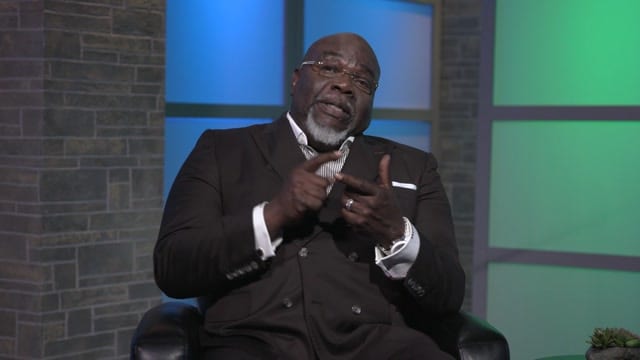
Bishop T.D. Jakes identifies a key challenge leaders face when casting a compelling vision.

As the lead pastor of The Life Christian Church in New Jersey, Terry A. Smith’s congregation is known for its vibrant diversity and robust leadership culture. He credits his ability to reach diverse people to his practice of radical hospitality, outlined in his new book The Hospitable Leader. We recently sat down with Terry to learn more.
GLN: You said The Hospitable Leader is an invitation to be part of the movement. Can you describe this movement and why you think leaders should join?
TERRY SMITH: When I talk about hospitable leadership, I’m encouraging leaders to understand how important it is to create an environment of welcome. You cannot influence people who haven’t been welcomed.
Jesus described His kingdom as a feast. I love this idea of a leader thinking about their leadership as a feast for their followers. What would it be like if all leaders had that idea?
But we fight against the pull of increasing polarization, which by definition is inhospitable. We feel it around every significant issue in our society. I think the answer is to shift the conversation. If we view leadership through the lens of hospitality, then we can sit at the table with all kinds of people to build bridges and accomplish amazing things together.
GLN: How can leaders diagnose a hospitality problem in their organizations?
SMITH: Here’s how I define hospitable leadership: A hospitable leader creates environments of welcome where moral leadership can more effectively influence an ever-expanding diversity of people. This definition gets at the importance of a hospitable environment. A hospitable environment is the precursor to the exercise of every kind of moral leadership. And the key metric to assess effectiveness is to ask yourself if you are influencing an ever-expanding diversity of people.
A hospitable leader creates environments of welcome where moral leadership can more effectively influence an ever-expanding diversity of people.
There are two key questions to diagnose your hospitality: 1) Is moral leadership occurring? 2) Is there an ever-expanding diversity in the types of people we are influencing?
GLN: Hospitable leadership has helped you successfully navigate through some potentially polarizing issues. What practice has helped you succeed?
SMITH: We always start with our values—and one of our values is hospitality. We love to welcome strangers. A key verse for us is Hebrews 13:1-2: Keep on loving one another as brothers and sisters. Do not forget to show hospitality to strangers, for by so doing some people have shown hospitality to angels without knowing it. The Greek word in verse 1 is philadelphia, which means brotherly love. But the Greek word in verse 2 is philoxenia, which means the love of strangers. It is the opposite of xenophobia.
In culture today, we talk a lot about practicing philadelphia—loving people who are like us. But we can’t stay in philadelphia. We have to move to philoxenia and learn how to love strangers. Many of us settle for the low standard of tolerance—but this is not philoxenia. We need to encourage people to really do life with people who are not like themselves.
We practice this value in the way we do everything. I couldn’t imagine how small my life would be if I hung out with people who are just like me every day. We hold up this value and encourage people to get excited about being with people who aren’t like them. It’s just so expanding.
GLN: You argue that hospitality requires inclusivity, but it also requires the need to speak truth. Talk about how you have succeeded in this challenging balance.
SMITH: The best communicators start by identifying the things they have in common with their audience. But they are also great listeners. Assume that your audience is smarter than you, and that you have something to learn from them. Talk carefully, always listening, even as you speak. It doesn’t mean you say what they want to hear. That wouldn’t be leadership. But you’re saying it in a way that they want to hear it.
A few years ago, we had a guest at our church who worked on a late-night show that makes fun of people who have a Christian worldview. It just happened that my message that day dealt with a couple of societal issues that are very divisive. I addressed these issues carefully, yet at the same time did not compromise what I believed to be true according to scripture. After the service, this guy walked up to me and said, “I just want you to know I disagree with everything you said today, but I loved the way you said it. We’ll be back.” That was three years ago and they’re still coming to our church, listening to me speak and experiencing transformation in their lives.
GLN: How do you facilitate reciprocal candor in your organization?
SMITH: I’m a big fan of Jack Welch’s book Winning and one of his ideas is the importance of candor. I bought that book after hearing him speak at The Global Leadership Summit in 2010. Personally, I don’t have a problem speaking the truth in love to my staff to help them grow. However, they didn’t feel comfortable coming to me with the truth.
We went to work on the idea of reciprocal candor, where we hold up the value of the importance of truth, especially in a relationship where one person has more power.
Recently, I sat down with a new direct report for our first one-on-one. I said, “Do you feel comfortable telling me the truth? Sometimes people say they are intimidated by me. What can I do to make this easier for you? Help me create an environment in our relationship where you can practice candor with me and feel comfortable doing it and know that I will celebrate it. Our relationship won’t work if you don’t tell me the truth.”
GLN: Talk about why a hospitable culture actually can help people achieve their dreams.
SMITH: This is one of my favorite things in the whole world! The mission of our church is to inspire people to the life God dreams for them as we spread His love in ever-widening circles. A hospitable leader cares deeply about the dreams of their followers.
Inhospitable leadership is about helping the leader’s dreams come true. Hospitable leadership is about helping the followers’ dreams come true. If the dreams of their followers come first, and they sense the leader is behind them, then they will work harder to make the dreams of the leader or the organization come true.
Inhospitable leadership is about helping the leader’s dreams come true. Hospitable leadership is about helping the followers’ dreams come true.
I frequently say to my congregation, “I get up every day to help your dreams come true.”
People want to know why our church attracts so many high capacity leaders. Well, if our congregation believes my first priority as a leader is to serve them, it’s amazing the kind of people who want to be in that kind of environment.
To learn more about Terry Smith’s vision for Hospitable Leadership, check out his insightful book, The Hospitable Leader: Create Environments Where People and Dreams Flourish.

Chris McChesney lists the key characteristics of an effective lead measure.

The Global Leadership Summit takes place in countries and cities where we never thought God would bring it. In some cases, we can’t even disclose the name of the city for the protection of the Christian pastors and leaders there who hunger so desperately for the leadership encouragement, inspiration and training.
This is one of those cities.
During the their GLS event in February, the Summit blessed hundreds of leaders in a persecuted region of the Middle East currently experiencing war.
Be blessed by the words of several of the attendees, and know that your prayers and support are not in vain.
—
After my retirement last year, I thought, this is it. But since attending the GLS, I discovered God is not done with me yet. God has a plan for my life—to influence emerging leaders through my experience and use whatever abilities God has given me for the development and good of others and my community. I can say with confidence that the best is yet to come. Thank you for coming to our province. – Retired deputy inspector general of police from undisclosed country
—
God wanted to use me to speak to these different tribes to reach these souls for the kingdom of God.
I was a businessman when I started to come to The GLS in 2012. Then God started giving me directions. He helped me to understand my calling as a businessman. I never imagined how God could use me to speak six different tribal languages. God wanted to use me to speak to these different tribes to reach these souls for the kingdom of God. Since then, I started helping my church plant 13 churches in my province. Now I know why I can speak six different languages. I go with my pastor to share the Word in these areas and many young people are blessed by my testimony. Thank you to the GLS! – Pastor and businessman from undisclosed country
—
I am a regular participant of the GLS. It is my only year-round mentoring tool. I fill my notebook corner to corner with all the main points of the sessions. I also fill it with the things I believe God is saying to me during these two days. The GLS will be over in two days, but my notebook will stay with me. I carry it along and teach from it wherever I go. Thanks to the GLS for giving us a study notebook in our own language. Every time I come, I learn new things. It’s improving my life. – Pastor from undisclosed country
—
The GLS is a life-changing experience
I am a principal in a government school and my husband is a pastor. Every time my husband went to GLS, he came back with a new spark in his ministry. I could clearly see a drastic change in his personality and in our family life, too. I was curious about all this, so this time I went with him. I can now clearly understand, by the grace of God, the GLS is a life-changing experience. God changed my life and I pledged to myself that I will share what I have learned with my staff. I am so thankful to God that my husband took me to the GLS so that the plan of God shall be fulfilled in and through my life. I have more than 50 staff working under me and about 1200 children to care for—most of them Muslim. God has changed and blessed me through the GLS to influence and bless many around me with the love of God. Thank you for coming to my city. – School principal from undisclosed country
—
I never ever had this type of experience before in my life! During the second day’s prayer time, I heard God speaking to me. I went through bad practices in my life and I was stuck. Despite several times having the opportunity to come out of those bad practices, I chose not to do so!
When my pastor invited me to attend the GLS, he said he was pretty confident that I would be blessed. It turned into reality. God spoke to me and clearly guided me to come to the right path of righteousness, follow Him in all the ways of my life and promised He would bless me. That was a very special moment for me to turn to God. I repented right away. And I believe He has forgiven me. The GLS is a turning point in my life. I am grateful to God for the host pastor who cares to take hard roads. His passion is seen in the atmosphere and in the care he and his wife give to their guests. Thank you for the GLS! – Businessman from undisclosed country
—
Joyfully, my entire group registered to attend, but two days before we were supposed to start our 11-hour train trip, my youngest daughter suddenly got terribly sick. We could not decide whether to go to the GLS or not! We took her to the doctor in the village, but there was no difference in her health. At last I decided to call the GLS office and tell them about my problem and offer my regrets about not attending this time. I was perfectly calm before making the call, but then something happened. All of a sudden, when I heard the voice on the phone, I started crying. I told her about my problem. She encouraged me and said, Brother, I can understand your problem, but can I pray for your daughters’ healing? I said yes, and she prayed. I went back to the room where my daughter was unconscious. After few minutes, she opened her eyes and asked for water.
I felt prompted by the Holy Spirit that I must go to the GLS and give my testimony for the glory of God!
I was at peace. My family went to sleep that night, and when we woke up in the morning, it was a miracle for us. My daughter was perfectly healed! We were amazed that God healed her in her sleep. We were rejoicing!
I felt prompted by the Holy Spirit that I must go to the GLS and give my testimony for the glory of God! My wife and I decided that I would go to GLS. So here I am, right on time! We were so glad to attend this fabulous event. I have received all my blessings here about what God has in store for me and for others. When we are willing to do His work, He is able to make a way… even through the supernatural healing of my daughter! – Pastor from undisclosed country
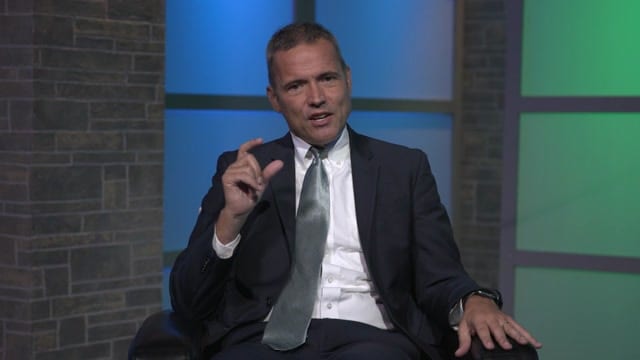
David Livermore explains how every person is involved with innovation in their daily lives.
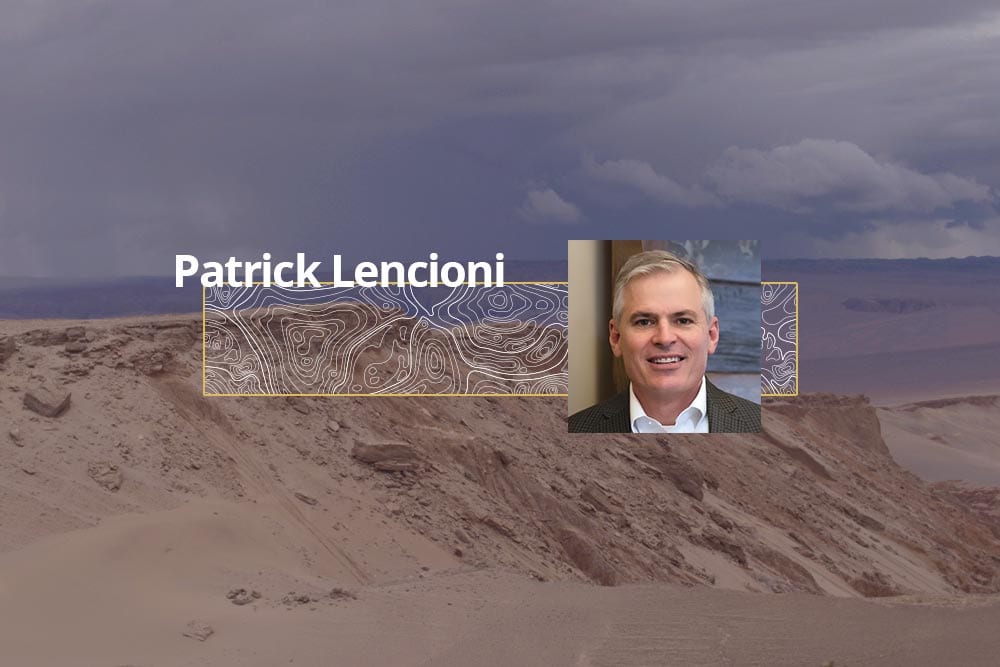
We are thrilled to have our good friend, Patrick Lencioni, return to the Summit stage for GLS19. A Summit favorite, Lencioni will unpack his new work on motivation and how it shapes our leadership. In the article below, he outlines the challenges of looking at leadership as your vocation.
I really enjoy golfing, though I’m not very good at it. But even if I were a fantastic golfer, I wouldn’t want to do it professionally. Most of my friends think I’m crazy. “How could you not want to get paid lots of money to play golf on beautiful courses around the world?” My answer is simple. It would be a grind.
To be a successful leader, one has to love what it entails.
The thought of playing 18 holes a day, six days a week, and spending additional time at the driving range and the putting green, would get old for me very quickly. The fact is, though I enjoy golfing, I don’t love it. To be great requires that I do.
The same is true for any profession, even the seemingly “glamorous” ones. Whether it is doing stand-up comedy or playing basketball or designing video games, success requires a person to love something so much that he or she would be willing to work harder at it than most reasonable people would want to work.
Leadership is no different. To be a successful leader, one has to love what it entails.
Unfortunately, society has glamorized leadership more than is warranted, leaving far too many people with the dream of being a CEO or a school principal or a pastor. From clichéd graduation speeches that encourage everyone to become a leader, to unrealistic movies that portray leaders as spending their time giving speeches and appearing on television, people have come to believe that being a leader is mostly an attention-getting, personality-centered and ego-satisfying vocation. Any leader knows that it is not. It is about doing hard things day in and day out, even when you don’t feel like it.
The danger of over-glamorizing a profession is not such a big deal when it comes to golf and stand-up comedy or football. It is mostly limited to disappointment on the part of aspiring young athletes and entertainers, and an occasional bad stand-up routine in your neighborhood club. But the cost of people deciding to be leaders for the wrong reason is much greater.
For people who love to lead, leadership is not a grind, but a vocation.
Leaders who choose their vocations out of notoriety or power or money create serious problems in the organizations they are supposed to be serving. They find the daily responsibilities of their jobs—meetings, difficult conversations with employees, management duties—to be tedious or unfulfilling. So, instead of embracing those responsibilities, leaders abdicate them leaving a gaping hole that no one other than the leader can fill. The result is a culture of underperforming companies and confused employees who have come to accept the idea that work is frustrating, if not miserable.
The fact is, for people who love to lead, leadership is not a grind, but a vocation. They not only embrace staff meetings and difficult conversations, but actually prefer them to speeches and TV interviews.
Let’s hope that more people come to see leadership this way, and that the others find something they really love.
This article was originally posted on the Table Group website, The Hub.
Check out Patrick’s interview with Karen Wells on the latest episode of the GLS Podcast.
Join 405,000+ of your peers for two days of fresh, actionable and inspiring leadership training from a world-class faculty at a location near you.
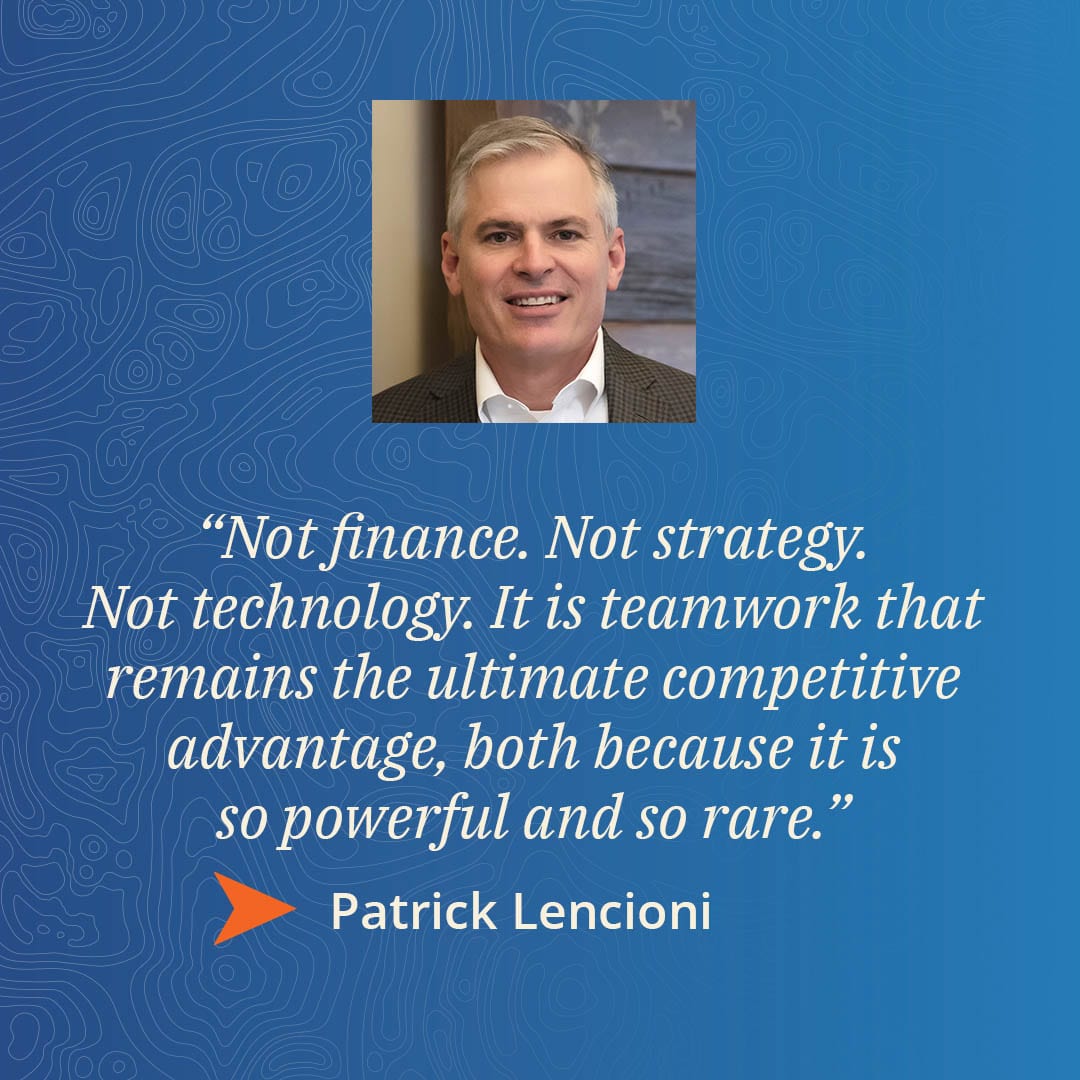
Not finance. Not strategy. Not technology. It is teamwork that remains the ultimate competitive advantage, both because it is so powerful and so rare.
“We welcome and encourage comments on this site. There may be some instances where comments will need to be edited or removed, such as:
If you have any questions on the commenting policy, please let us know at heretoserve@globalleadership.org”
Recent Comments